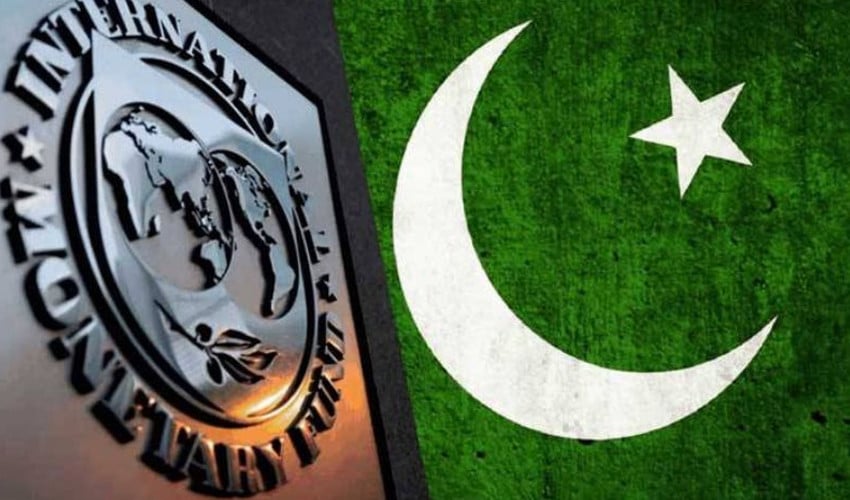
The finance ministry and Petroleum Division are at loggerheads over the implementation of a major International Monetary Fund (IMF) condition to cut gas supplies to industrial electricity plants by January, once again exposing poor negotiations of the $7 billion deal.
During a meeting at the prime minister's house, the Petroleum Division claimed that the finance ministry accepted the condition despite its reservations at the time of the programme negotiations. The division further claimed that abrupt disconnection may cause a Rs427 billion loss to the government and the industries.
However, the finance ministry insisted that the Petroleum Division was fully on board at the time of the negotiations and was now changing its position.
The development comes amid the Power Division's assessment that the complete shifting of industries from gas to electricity would require about two years.
The standoff also indicates that the Pakistani authorities did not think through before accepting the condition to disconnect gas connections by January 31, 2025.
Both the major players could not resolve the differences despite the escalation of the dispute to the level of Prime Minister Shehbaz Sharif. The prime minister has taken at least two meetings on the issue, while four meetings were also held with the IMF in the last week, according to sources privy to the development. The sources said that there were also some tense moments during this week's meeting at the PM's house when one minister tried to aggressively defend his position.
As part of roughly 40 conditions agreed in return for the $7 billion package, Pakistan signed off in September to permanently stop the supply of gas for in-house power generation by industries. But within weeks, the ministries are quarrelling with each other.
The Petroleum Division has estimated hundreds of billions of rupees in losses if the supplies are disrupted suddenly, including the Rs100 billion cross-subsidy that is recovered from the industrial consumers to supply gas at cheaper rates to residential consumers.
According to the IMF deal, the gas sector reforms will focus on price normalisation across sectors and captive power elimination. The IMF wants to shift the industrial consumer to the national electricity grid with the purpose of boosting declining electricity consumption and "channelling scarce gas resources to more efficient gas-based power generators and reducing power generation costs."
When contacted, the finance ministry stated that it had taken the Petroleum Division in to confidence before finalising the structural benchmark with the IMF. It further stated that the initial drafts of the agreement were shared with the Petroleum Division in May-June; its concerns were also incorporated.
The Petroleum Division, however, has a different story to tell. Its senior official said that the division did acknowledge the condition but has been constantly conveying to the finance ministry and the IMF that it was difficult to implement the condition by January 2025.
A senior official of the Petroleum Division said that during programme negotiations, the Petroleum Division sought more time to find a solution to the issue of gas disconnection. However, subsequently, the finance ministry shared the draft of the Memorandum of Economic and Financial Policies with the Petroleum Division and said that the condition has been agreed and now only language can be reviewed.
The official said that while the Cabinet Committee on Energy (CCOE) directed the phase-out of gas supplies to captive power plants in 2021, the government increased LNG imports for industrial use in 2023. Additionally, a deal with Qatar for 48 extra LNG cargoes has created a gas surplus that now needs to be utilised.
The Petroleum Division official said that the government has already raised captive power tariffs and eliminated the distinction between export and non-export industries by redefining consumer categories as "industrial process" and "industrial captive power".
The government and IMF assume that after the discontinuation of gas supplies, the industries will shift to the national grid – an assertion that may not prove true due to the fact that the industries may opt for alternate sources. Currently, the consumers pay about Rs18.50 per unit in idle capacity payments, which both the finance ministry and the IMF believe can be cut by increasing consumption.
But these questionable policies of the IMF, World Bank and government that have forced many residential and industrial consumers to shift to alternate sources of energy.

1718870162-0/BeFunky-collage-(60)1718870162-0-405x300.webp)
1730504285-0/Martha-(1)1730504285-0-165x106.webp)






1719053250-0/BeFunky-collage-(5)1719053250-0-270x192.webp)








COMMENTS
Comments are moderated and generally will be posted if they are on-topic and not abusive.
For more information, please see our Comments FAQ